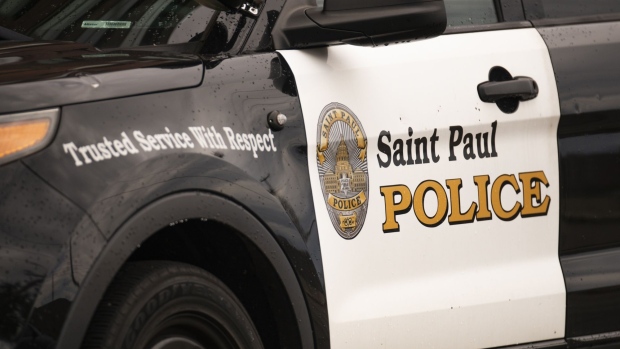Jun 25, 2020
In St. Paul, Police Reform Is Working
, Bloomberg News

(Bloomberg Opinion) -- The protests over George Floyd's death radiated out from south Minneapolis to the world. But in Minnesota, at least, they've so far failed to produce the tangible change that marchers demanded. On Saturday, the state legislature adjourned a special session without agreeing on long-sought policing reforms. It was a disappointing outcome but not surprising: The anger that erupted in recent weeks was, in part, the result of years of failed efforts to impose meaningful changes on the city’s police force.But even as the legislature succumbed to its penchant for gridlock, its host city, St. Paul, is more than two years into a promising public-safety reform under the leadership of 41-year-old Melvin Carter, the city's first Black mayor. Carter would be the first to admit that the job is far from done. Yet at a time when other cities are struggling to match their reform rhetoric with plans and action, Carter and St. Paul have been pushing ahead.St. Paul's current efforts actually have roots in the early 1970s. At the time, many Black residents felt “over-policed and underprotected” and tensions were high. In response, the city became a pioneer in “community policing,” a form of law enforcement in which officers are continuously assigned to a neighborhood to attempt to create a bond with residents.Carter's father was one of those officers. In a recent phone conversation, Carter recalled “the amazing, superhero-esque ways” that the police “solved problems that you may not know existed if you weren't from the community.” But as much as he admired the police as a child, he also learned to be wary as he grew into a teenager with a driver’s license. “I used to joke that I'd get pulled over every six blocks or so for something ridiculous, for things that had absolutely no correlation to my driving that must've been for something else.”Carter's successful mayoral campaign in 2017 occurred during a tumultuous time in St. Paul. The acquittal of the officer accused of killing Philando Castile in a neighboring suburb set off large-scale protests in the city, and placed police reform at the top of the next mayor's agenda. For Carter, though, reform alone was never going to be sufficient. Instead, he campaigned on a plan to boost “all those supports within communities that can help to prevent the likelihood that crime will happen in the first place.”That included funding for youth centers, economic development, housing assistance and other programs of the kind that many activists have in mind when they argue for “defunding the police.” Carter told me that he hasn't taken a position that's “dogmatically for or against hiring more police officers.” One of his budgets increased officers, the other decreased them. But he is impatient with the tendency to use staffing numbers as the sole metric for judging public safety. “We can't just hire police officers and expect to be building a balanced community based on that one investment,” he said.Early on, Carter pushed to reform the department’s use-of-force policy so that it emphasized de-escalation and offered a clearer definition of “resistance” on the part of suspects. Community input was solicited and in some cases incorporated, including a suggested provision to remind officers that “verbal arguing alone does not constitute active resistance.” Carter also helped create a mental-health unit that, among other things, embeds social workers with police, dispatches them when a 911 call is likely to involve a mental-health issue (there are thousands of such calls a year) and allows them to follow up.“The staunchest police supporters will say our officers don't have the capacity or the expertise to be the social workers and the mental-health therapists and the drug counselors,” Carter told me. “So we should invest in those things.”Other investments have proved more controversial, especially after a surge in gun violence last year. In November, Carter proposed a $3 million supplemental public-safety budget that would fund a range of community priorities, including youth-employment efforts, parks and recreation centers, and a pilot program to support landlords who rent to tenants with criminal records. Carter acknowledges that such programs are a difficult sell, especially to citizens who view them as taking money from traditional law enforcement. But, he said, St. Paul is spending millions more on public safety and policing than it was a decade ago, and many residents don't feel safer. “That's why we’re doing it differently.”So far, Carter's approach has support from the city council and from much of the public. But that consensus is fragile. Last year, reform advocates complained that Carter hadn’t gone far enough, and was too supportive of police officers. Meanwhile, the mayor says he has “no relationship” with the city’s powerful police union.It’s a reminder of the careful line that reform-minded leaders must walk to advance far-reaching policing reforms. Despite his successes, Carter has no illusions about how much further his community, and others, have to go. “When I get in my car, and I loosen my tie, and I drive beyond our city limits, I'm a black man in America,” he told me. “This is the civil rights issue of our day.”
This column does not necessarily reflect the opinion of the editorial board or Bloomberg LP and its owners.
Adam Minter is a Bloomberg Opinion columnist. He is the author of “Junkyard Planet: Travels in the Billion-Dollar Trash Trade” and "Secondhand: Travels in the New Global Garage Sale."
©2020 Bloomberg L.P.